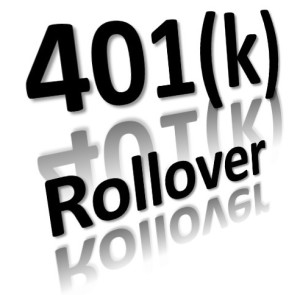THE MONEY MINUTE: Nine considerations for your 401(k) rollover

 by Jac M. Arbour CFP®, ChFC®, President
by Jac M. Arbour CFP®, ChFC®, President
J.M. Arbour Wealth Management
A 401(k) (or a 403(b), 457 Deferred Compensation Plan, Thrift Savings Plan, Profit Sharing Plan, SEP IRA, SIMPLE IRA, etc.) is a retirement account that is sponsored by an employer and offered to the employees, also known as the participants in the plan. These types of plans are known as defined contribution plans and are often attractive to people as they can offer cost-effective ways to invest, receive investment advice, and oftentimes, receive an employer match. Regardless of the plan you have, here are some things to consider.
- You have four choices when considering a rollover: You can leave the plan where it is (under certain criteria), rollover to an IRA (Traditional or Roth, including self-directed), rollover to the plan at your new employer (if accepted), or cash it out (tax withholdings are mandatory).
- Direct vs. Indirect Rollovers: A rollover is considered a direct rollover when the money is moved from one qualified account to another (tax-free event). A rollover is considered indirect when the money is transferred from the retirement account to you personally (taxes will be due if not placed into a qualified account within 60 days and only one per twelve-month period is allowed).
- Consider working with an advisor: An advisor that is comprehensive in their approach gives advice relative to everything going on in a person’s life. Savings, investments, insurances, debt, cash flows, family structure and dynamics, upcoming capital expenses, short- and long-term financial goals, college plans, travel, personal preferences, etc.
- Open investment architecture: Be sure to understand what you will have access to for investment options regardless of the rollover option you choose.
- Systematic withdrawals: One, if not THE, most important uses of a 401(k) or retirement plan is to supplement other sources of retirement income, such as Social Security or pensions. Not all plans allow for these withdrawals once retired or no longer employed. Check with your plan administrator.
- Creditor Protection: Creditor protection in an IRA is not always the same as that of an ERISA governed retirement plan. Be sure to know the differences in your state before making the change.
- Loans: A qualified plan may, but is not required, to permit loans. IRAs do not offer loans. This is important to note as loans can be a great way to access money in times of need.
- Consolidate: Many people have several “old” retirement plans at former employers. It can be easier to manage the money when it is all in one place.
- Required Minimum Distributions: Be sure not to miss these. They begin at age 70.5 (now 72 if you turned 70.5 after January 1, 2020). Consolidation is also useful when calculating these distributions.
Here is what I promise: If you do your homework before making any rollover decisions, it will likely pay dividends (no pun).
See you all next month.
Jac Arbour CFP®, ChFC®
Jac Arbour is the President of J.M. Arbour Wealth Management. He can be reached at 207-248-6767.
Investment advisory services are offered through Foundations Investment Advisors, LLC, an SEC registered investment adviser.
Responsible journalism is hard work!
It is also expensive!
If you enjoy reading The Town Line and the good news we bring you each week, would you consider a donation to help us continue the work we’re doing?
The Town Line is a 501(c)(3) nonprofit private foundation, and all donations are tax deductible under the Internal Revenue Service code.
To help, please visit our online donation page or mail a check payable to The Town Line, PO Box 89, South China, ME 04358. Your contribution is appreciated!


Leave a Reply
Want to join the discussion?Feel free to contribute!